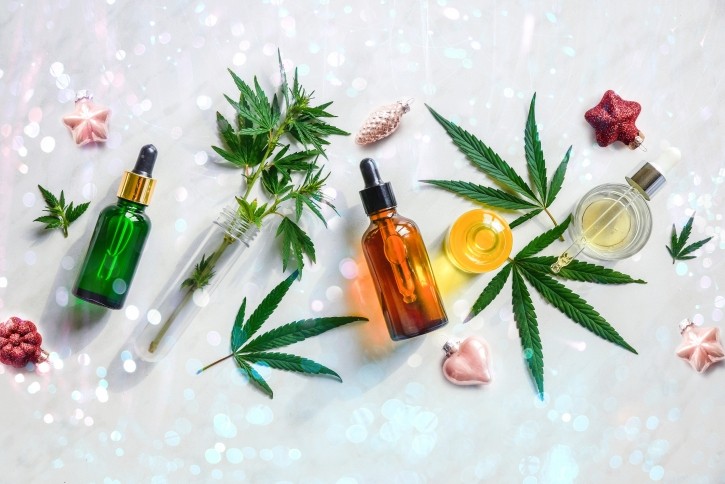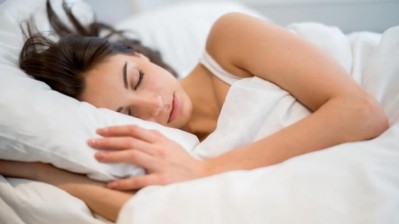CBD and botanical blend offers synergistic benefits for sleep and anxiety

Conducted by scientists at Radicle Science as well as Universities across the US, this randomised, double-blinded, placebo-controlled trial evaluated the effectiveness of two softgel dietary supplements containing varying quantities of CBD, CBN, hops oil and valerian oil, compared to a placebo, over four weeks.
This study is among the first to investigate the effectiveness and safety of supplements that aim to enhance sleep and overall health in a large participant sample.
The supplements were specifically designed to harness the potential synergistic effects of botanical ingredients that demonstrated favourable outcomes in promoting better sleep.
The researchers conclude there was a significant improved effect on sleep disturbance, anxiety, stress, and overall well-being in the group taking the CBD formula with a lower quantity of THC (0.35 mg) and higher levels of botanicals (75 mg each hops oil and valerian oil).
Want to learn more?
Susan Hewlings, Vice President of Research Affairs at Radicle Science, will speak at NutraIngredients' FREE webinar on the subject of supplements for sleep and stress control, airing on September 21st 2023.
Register now to join the event live or tune in on-demand.
Plants with potential
Inadequate sleep is related to increased obesity and inflammation, impairs immune and antioxidant defences, and negatively impacts mood, attention, memory and general cognitive function. Many individuals experience negative side effects from prescribed medications for sleep and choose to seek alternate solutions, such as dietary supplements and plant-based alternatives.
The cannabis plant is composed of 120 different phytocannabinoids of which Delta-9 tetrahydrocannabinol (THC) and cannabidiol (CBD) are the most widely known and researched, but others, such as cannabinol (CBN) are growing in popularity, according tot he authors.Cannabinoids produce varying effects in the human body by interacting with the endocannabinoid system (ECS), which is located throughout the brain and the central and peripheral nervous system and is suggested to modulate the circadian sleep/wake cycle.
CBN is a by-product of THC and is found in small amounts in the cannabis plant but research related to CBN and sleep is limited, and the majority dates back to the 1970s and 1980s.
Y-aminobutyric acid (GABA), a non-protein amino acid, is well known for its role as an inhibitory neurotransmitter in the central nervous system, promoting relaxation and sleep.
Additionally, γ-Glutamylethylamine, also known as L-theanine, is a non-protein amino acid found in green tea, often used to improve sleep and modify stress. It is thought to increase expression of dopamine and serotonin in the brain by increasing GABA levels.
Botanical essential oils are also gaining popularity for their effectiveness in improving sleep. Several studies support the sedative properties of hops oil, thought to occur due to a degradation product, 2-methyl-3-buten-2-ol, that increases GABA.
A popular oil often used together with hops, is Valeriana L., a group of perennial herbs belonging to the family Caprifoliaceae. It has been suggested the compounds within the oils could act synergistically on GABA receptors to increase GABA release and inhibit uptake.
The authors of the current study hypothesised these ingredients could work in synergy "because sleep is multidimensional and complex, thus warranting a multi-ingredient approach".
Known as the 'entourage effect', it is suggested that synergy among the cannabinoid compounds may enhance the effectiveness of THC, thus allowing a lower effective dose, minimizing the psychoactive effects of THC while maintaining the benefits.
"Whether compounds from other botanicals would provide a similar synergistic effect is unknown," the report notes. "The aim of this study was to assess the effects of two different softgel dietary supplements, one with lower THC and higher levels of other botanicals (Sleep A), and one with higher THC and lower levels of other botanicals (Sleep B), on sleep disturbance relative to placebo."
The Study
The study, 'Radicle Rest', was a randomized, double-blind, placebo-controlled, parallel-group virtual trial, designed to assess the effects of health and wellness products on sleep, anxiety, stress, pain, and overall health-related quality of life.
Recruits were randomised to one of three study arms: Sleep A (m=206), Sleep B (n=207), or placebo (n=207). Sleep A and B formulas contained the same amount of CBD, CBN, and L-Theanine, but varying amounts of THC, GABA, hops and valerian oil.
Participants were sent a 4-week supply of their study product and instructed to take one softgel supplement 30 minutes before bedtime.
The study product formulations are proprietary to the manufacturer, but both Sleep A and B formulations contained the same amount of CBD, CBN, and L-theanine; Sleep A formula contained lower amounts of THC (0.35 mg) and higher amounts of GABA (150 mg), hops oil (75 mg), and valerian oil (75 mg) relative to the Sleep B formula (0.85 mg THC, 125 mg GABA, 20 mg hops oil, 20 mg valerian oil).
Throughout the study, participants received a health survey asking them to report their study product usage for the week and health outcome assessments for their sleep disturbance, feelings of anxiety, stress, pain, and overall well-being using the same validated health measures used at baseline
At baseline, 90% of participants reported that they suffered from stress and 76% reported that they suffered from sleep disturbances most (63.6% reported mild or moderate sleep disturbances). In this study, 66% of participants were female, 34% were male, and 80% identified their race as white.
The interaction between study week and Sleep A (Arm 1) showed a significant negative association with sleep disturbance (β = −0.639, p = 0.0027), anxiety (β = −0.258, p = 0.041) and stress (β = −0.360, p = 0.004) and a positive association with well-being (β = 0.318, p = 0.0346). This indicates that participants using Sleep A were more likely to experience a decrease in sleep disturbance, anxiety and stress, and improves well-being, compared to participants using placebo.
The change in placebo group remained consistent over the course of the study, while the treatment group continued to improve.
Side effects were slightly more common among the active arms, predominantly grogginess and drowsiness and mostly mild.
Mechanism of action
The researchers put forward a hypothesis regarding the potential reasons for the superior performance of Sleep A in reducing sleep disturbances compared to Sleep B.
Firstly, they note previous research suggests that strains with lower THC may be more effective at promoting sleep.
Secondly, Sleep A contains higher levels of GABA, hops oil, and valerian oil. These ingredients are known to function as positive modulators of GABA, a neurotransmitter associated with promoting sleep and inducing mild sedation, so they may have contributed to its effectiveness in improving sleep quality.
The authors conclude that further research is required to determine the health impacts of the individual components of the supplements studied: "Considering the complex combinations of products examined in this study, further investigations are warranted to identify the specific active ingredient(s) responsible for the observed significant effects. To achieve this, a rigorous study employing a factorial design with multiple arms would be beneficial. This design would systematically vary the ingredients in different combinations, allowing for the examination of both their individual effects and potential interactions on behavioral outcomes. Such an approach would enhance our understanding of the precise drivers behind the observed effects."
Source: Nutrients
https://doi.org/10.3390/nu15173788 (registering DOI)
"A Randomized, Double-Blind, Placebo-Controlled Decentralized Trial to Assess Sleep, Health Outcomes, and Overall Well-Being in Healthy Adults Reporting Disturbed Sleep, Taking a Melatonin-Free Supplement"
Authors: Kolobaric, A.; Hewlings, S.J.; Bryant, C.; Coldwell, C.S.; D’Adamo, C.; Rosner, B.; Chen, J.; Pauli, E.K. A














